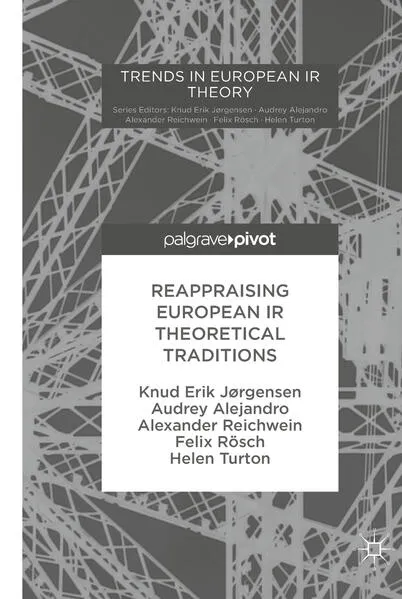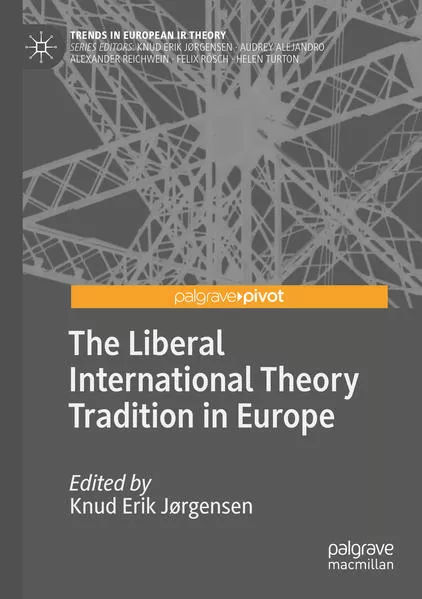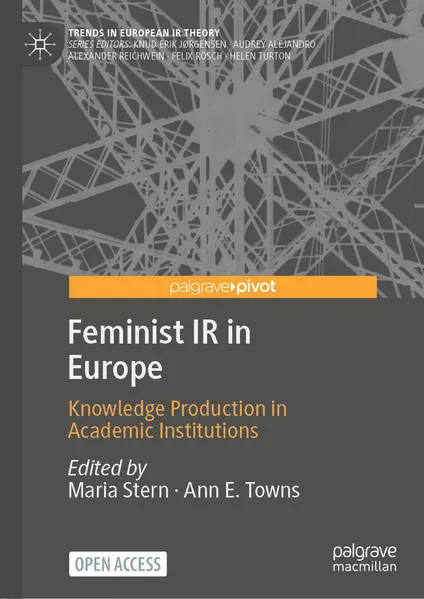Chronologie aller Bände (1 - 3)
Die Reihenfolge beginnt mit dem Buch "Reappraising European IR Theoretical Traditions". Wer alle Bücher der Reihe nach lesen möchte, sollte mit diesem Band von Knud Erik Jørgensen beginnen. Der zweite Teil der Reihe "Feminist IR in Europe" ist am 01.03.2022 erschienen. Mit insgesamt 3 Bänden wurde die Reihe über einen Zeitraum von ungefähr 4 Jahren fortgesetzt. Der neueste Band trägt den Titel "Feminist IR in Europe".
- Anzahl der Bewertungen für die gesamte Reihe: 2
- Ø Bewertung der Reihe: 4.5
- Start der Reihe: 14.11.2017
- Neueste Folge: 01.03.2022
Diese Reihenfolge enthält 2 unterschiedliche Autoren.
- Autor: Jørgensen, Knud Erik
- Anzahl Bewertungen: 0
- Ø Bewertung:
- Medium: Buch
- Veröffentlicht: 23.11.2017
- Genre: Sonstiges
Reappraising European IR Theoretical Traditions
This book is about European IR theoretical traditions, their origins, and key figures. Theorizing is among the most important activities that take place within scientific disciplines. Scholars therefore routinely talk/debate about the discipline of IR and its theories, theories are often used to form the pedagogical backbone of IR and theories are also a key part of scholarly identities. Over time, theories crystalize in to schools of thought, strands of theorizing and theoretical traditions. This book and the volumes that will follow focus on the origins and trajectories of theoretical traditions, and key figures of IR thought in Europe in the 20th Century. The authors are situated in Europe, and it is thus the origins and trajectories of European theoretical traditions, its intellectual history and contemporary forms of theoretical knowledge today, that are on the agenda. In order to achieve this ambitious aim, we opt for a transnational sociological history approach, thus going beyond the national lens through which IR has been predominantly studied. The series will have an integrative function and contribute to a globalized discourse on IR as a discipline. The key benefits of this first volume is that it outlines IR theoretical traditions for the first time ever, provides a novel framework for exploring IR’s theories, and contributes to define and strengthen the European identity of IR. This book is an invaluable resource for scholars of IR.
- Autor: Jørgensen, Knud Erik
- Anzahl Bewertungen: 0
- Ø Bewertung:
- Medium: Buch
- Veröffentlicht: 06.01.2022
- Genre: Politik
The Liberal International Theory Tradition in Europe
This book examines how the liberal international theory tradition evolved in Europe. It includes nine chapters focusing on both historical and contemporary branches of liberal IR theorizing. The combined portrait of the prominent IR theory orientation shows a long and rich theoretical tradition but also a tradition that the scholarly community rarely fully recognize. It is currently somewhat challenged and therefore in need of further advances. Concerning the historical branches, the authors present a truly European tradition that thus was not only present in a few countries. The contributors introduce examples of liberal theorizing that IR scholars tend to dismiss and they trace the boundaries between the liberal and other theoretical traditions. Given the prominence of the tradition, the book is surprisingly among the first to present a transnational perspective on the development of the liberal international theory tradition in Europe.
- Autor: Stern, Maria
- Anzahl Bewertungen: 2
- Ø Bewertung: 4.5
- Medium: Buch
- Veröffentlicht: 01.03.2022
- Genre: Politik
Feminist IR in Europe
The aim of this open access book is to take stock of, critically engage, and celebrate feminist IR scholarship produced in Europe. Organized thematically, the volume highlights a wealth of excellent scholarship, while also focusing on the politics of location and the international political economy of feminist knowledge production. Who are some of the central feminist scholars located in Europe? How might the concentration of these scholars in Northern Europe and the UK shape the contents of their scholarship? What have some of the main contributions been, in the study of the following themes: security; war and military; peace; migration; international political economy and development; foreign policy; diplomacy; and global governance and international organizations? The volume offers both an intellectual history and a sociology of feminist IR scholarship in Europe. It showcases the vitality and breadth of feminist IR traditions, while simultaneously calling attention to theirpartial nature, exclusions and silences.


